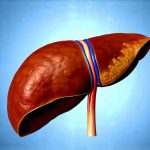Enzymes are often called the workhorses of our bodies, playing critical roles in nearly every physiological process – from digestion and nutrient absorption to energy production and detoxification. These remarkable proteins accelerate chemical reactions vital for life, but maintaining a healthy enzyme balance is surprisingly delicate. When this balance is disrupted—through factors like diet, stress, aging, or environmental toxins—it can lead to a wide range of uncomfortable symptoms affecting everything from gut health and immune function to energy levels and cognitive clarity. Many people immediately turn to pharmaceutical interventions when experiencing these issues, but often, significant improvements can be achieved through natural, lifestyle-based strategies that support the body’s inherent ability to restore enzymatic equilibrium.
The challenge lies in understanding that enzyme imbalance isn’t typically a deficiency of enzymes themselves, so much as it’s an issue with their optimal function. Our bodies are constantly producing enzymes, but factors can hinder their effectiveness or overwhelm our system’s capacity to utilize them properly. Furthermore, the modern diet—often high in processed foods and low in enzyme-rich whole foods—can contribute significantly to this imbalance. This article will explore how individuals can proactively manage enzyme imbalances without relying solely on prescription drugs, focusing on dietary modifications, lifestyle adjustments, and supportive supplementation strategies that prioritize natural healing processes. The goal is not to replace medical advice but rather to empower readers with knowledge and practical tools for optimizing their digestive and overall health.
Dietary Strategies for Enzyme Support
A cornerstone of managing enzyme imbalance lies in adopting a diet that supports optimal enzymatic function. This means prioritizing whole, unprocessed foods rich in naturally occurring enzymes and minimizing those that place an undue burden on the digestive system. Focusing on food first is paramount; supplements should be considered as additions to a well-founded dietary base, not replacements for it. The ideal diet will be individualized based on specific sensitivities and needs, but some general principles apply universally.
One key aspect is increasing intake of enzyme-rich foods. Raw fruits and vegetables are excellent sources – pineapple (containing bromelain), papaya (papain), mangoes, kiwi, avocados, and fermented foods like yogurt, kefir, sauerkraut, kimchi, and kombucha all provide valuable enzymatic support. These foods not only supply enzymes but also prebiotics that nourish beneficial gut bacteria, further enhancing digestion. Conversely, reducing or eliminating processed foods – which are often devoid of natural enzymes and can contain additives that disrupt digestive processes – is crucial. This includes minimizing refined sugars, artificial sweeteners, excessive amounts of cooked/processed carbohydrates, and highly processed oils.
Beyond simply what we eat, how we eat matters too. Thorough chewing is vital for initiating the digestive process by mechanically breaking down food and releasing enzymes from saliva. Eating slowly and mindfully allows our bodies to properly prepare for digestion and reduces stress on the system. Combining foods thoughtfully can also help – for instance, avoiding excessive amounts of protein and carbohydrates in the same meal as they require different enzymatic pathways for optimal breakdown. Ultimately, a diet centered around whole, unprocessed foods consumed with mindful awareness is a powerful foundation for restoring enzyme balance.
Lifestyle Factors Influencing Enzyme Function
While dietary changes are fundamental, lifestyle factors play an equally significant role in maintaining healthy enzyme function. Chronic stress, inadequate sleep, and lack of physical activity can all negatively impact digestive processes and enzymatic efficiency. Addressing these areas is essential for long-term well-being. Stress management techniques, such as meditation, yoga, deep breathing exercises, or spending time in nature, can help reduce cortisol levels – a hormone that disrupts digestion when chronically elevated.
Sleep deprivation also severely impacts the body’s ability to repair and regenerate, including enzymatic processes. Aiming for 7-9 hours of quality sleep each night allows the digestive system to rest and recover. Regular physical activity is another crucial component. Exercise promotes healthy gut motility, reduces inflammation, and supports overall metabolic function – all of which contribute to better enzyme balance. However, it’s important to choose activities that are enjoyable and sustainable rather than overly strenuous, as excessive exercise can also be stressful on the body.
Finally, minimizing exposure to environmental toxins is vital. These toxins can overwhelm the detoxification pathways in the liver and gut, hindering enzymatic function. Focusing on organic foods when possible, using natural cleaning products, and reducing exposure to pollutants can all help lessen this burden. A holistic approach that incorporates stress management, adequate sleep, regular exercise, and toxin reduction creates a supportive environment for optimal enzyme balance.
Supporting Gut Health
A healthy gut microbiome is intrinsically linked to enzyme function. The trillions of bacteria residing in our digestive tract play a critical role in breaking down food, synthesizing vitamins, and supporting immune function – all processes that rely on enzymes. When the gut microbiome is imbalanced—a condition known as dysbiosis—it can lead to decreased enzymatic activity and impaired digestion.
- Probiotic supplementation: Introducing beneficial bacteria through probiotic supplements or fermented foods can help restore balance in the gut microbiome. It’s important to choose a high-quality probiotic with diverse strains and consider consulting with a healthcare professional to determine the most appropriate option.
- Prebiotic intake: Prebiotics are fibers that feed the beneficial bacteria in our gut, promoting their growth and activity. Foods rich in prebiotics include garlic, onions, leeks, asparagus, bananas, and oats.
- Addressing leaky gut: A compromised intestinal barrier – often referred to as “leaky gut”—can allow undigested food particles and toxins to enter the bloodstream, triggering inflammation and further disrupting enzyme balance. Identifying and eliminating food sensitivities, reducing stress, and supporting gut healing with nutrients like L-glutamine can help restore intestinal integrity.
Optimizing Digestion
Beyond a healthy gut microbiome, optimizing the digestive process itself is critical for maximizing enzymatic function. This involves creating an environment that supports efficient breakdown and absorption of nutrients. One often overlooked aspect is hydration. Adequate water intake is essential for proper digestion and enzyme activity, as enzymes require a watery environment to function effectively.
- Digestive bitters: These herbal preparations stimulate the production of digestive juices – including stomach acid and pancreatic enzymes – aiding in food breakdown. They can be taken before meals to prepare the digestive system.
- Enzyme supplementation (with caution): While dietary sources are preferred, supplemental enzymes—such as amylase for carbohydrate digestion, protease for protein digestion, and lipase for fat digestion—can sometimes be helpful for individuals with specific deficiencies or digestive issues. It’s crucial to consult with a healthcare professional before starting any enzyme supplement regimen, as they may not be appropriate for everyone.
- Mindful eating practices: As previously discussed, slow, mindful chewing is essential for initiating the digestive process and reducing stress on the system. Eating in a relaxed environment, free from distractions, can further enhance digestion.
Reducing Inflammatory Load
Chronic inflammation hinders enzymatic activity and disrupts gut health, creating a vicious cycle that exacerbates enzyme imbalance. Identifying and addressing sources of inflammation is therefore crucial for restoring balance. This involves not only dietary changes – such as reducing processed foods, sugar, and inflammatory fats – but also lifestyle modifications to manage stress and minimize exposure to toxins.
- Anti-inflammatory diet: Incorporating anti-inflammatory foods like berries, leafy greens, fatty fish (rich in omega-3 fatty acids), turmeric, and ginger can help reduce inflammation throughout the body.
- Stress reduction techniques: As previously discussed, managing stress through practices like meditation, yoga, or deep breathing exercises is essential for reducing cortisol levels and minimizing inflammatory responses.
- Identifying food sensitivities: Food sensitivities – even mild ones – can trigger inflammation in the gut, disrupting enzyme balance. Eliminating potential triggers through an elimination diet (under guidance of a healthcare professional) can help identify and address these sensitivities.
Disclaimer: This article is intended for informational purposes only and does not constitute medical advice. Always consult with a qualified healthcare professional before making any changes to your diet or lifestyle, especially if you have underlying health conditions.


















